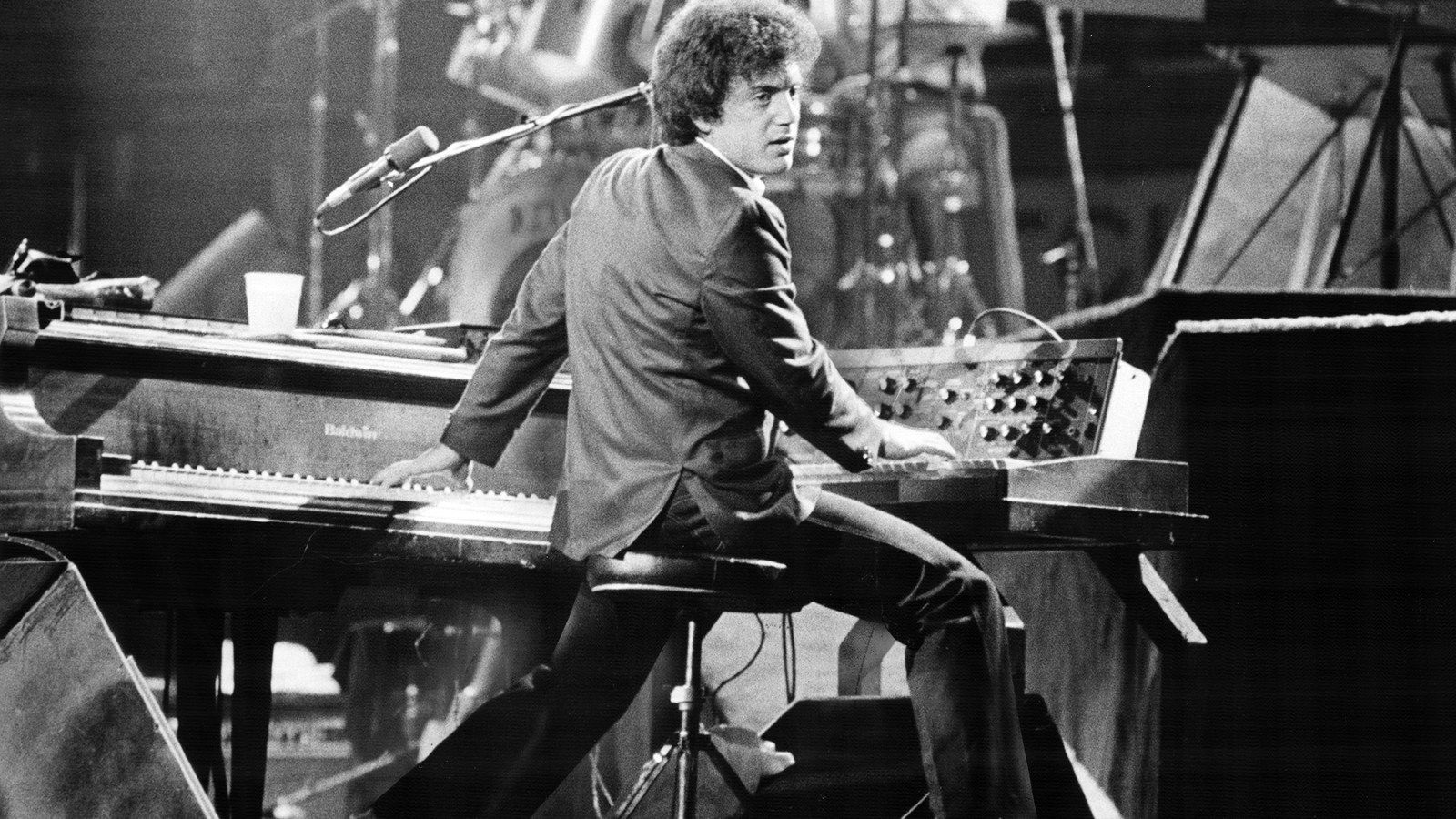Over five decades of classics spanning his entire career, from chart-topping hits to beloved deep cuts
Billy Joel is one of the all-time great pop legends — the piano man who’s kept the world singing along for over fifty years and thousands of Saturday nights. He’s a songwriter with an attic full of classics, not to mention a world-beating live performer. But he’s always stayed true to himself — a downtown man who ain’t too pretty and ain’t too proud. Billy was already a tough veteran when he blew up into rock stardom in 1977, with classics like “Movin’ Out (Anthony’s Song)” and “Scenes from an Italian Restaurant.” Yet he just kept cranking out hits, from albums like 52nd Street, An Innocent Man, and River of Dreams, with experimental detours like The Nylon Curtain.
So let’s break it down — the fifty best Billy Joel songs, from all over his career. Some of these tunes are classics known and sung all over the world. Others are deep cuts, cult bangers, or hardcore fan faves. Some go back to his early days, when he wore a younger man’s clothes. But they’re all Billy Joel at his very best. Now that we’re in the summer of 2025 — Brenda and Eddie’s fiftieth wedding anniversary!—let’s celebrate this legend and his amazing songbook, from the hits to the buried treasures, from Miami to Hollywood to a Greyhound on the Hudson River Line. We’re all in the mood for a melody, and he’s got us feeling all right.
-
‘Turn the Lights Back On’
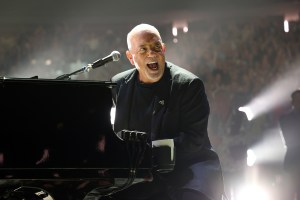
Image Credit: Kevin Mazur/Getty Images Billy Joel surprised the music world at the 2022 Grammy Awards with something that hadn’t been heard in a while: a new Billy Joel song. “Turn the Lights Back On” was his first new tune since 2007, when he dropped the singles “All My Life” and “Christmas in Fallujah.” It’s about a couple trying to rekindle their romance before it’s too late. Yet Joel gives it so much autumnal emotional resonance, making it sound like the love song of a veteran piano man to his audience, in the September of his years. “I’m late, but I’m here right now,” he sings. “Though I used to be romantic, I forgot somehow.” It sounds like his answer to Frank Sinatra’s “My Way.”–Rob Sheffield
-
‘Sleeping With the Television On’

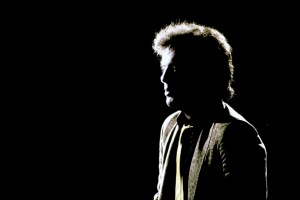
Image Credit: Richard E. Aaron/Redferns/Getty Images Joel’s 1980 album Glass Houses was influenced by the rise of New Wave and punk, confrontational sounds that fit the pushier, punchier side of his songwriting. The singles “You May Be Right” and “It’s Still Rock and Roll To Me” have a stripped down toughness akin to New Wave, and so does the excellent “Sleeping With the Television On,” a sharp assessment of thorny romantic ambiguity that’s particularly reminiscent of Elvis Costello in its well observed lyrics, the bite and harried cadence in Joel’s delivery, and an organ solo that could’ve come right off Costello’s This Year’s Model. Joel fans have often wondered why this tune wasn’t released as a single, and they’ve got a great point.–Jon Dolan
-
‘She’s Got a Way’

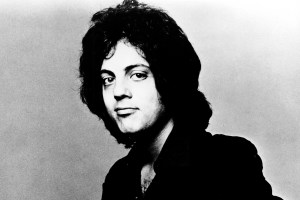
Image Credit: Gems/Redferns/Getty Images The first track from his first album remains one of Joel’s most enduring romantic ballads; his ode to future wife Elizabeth Weber continues to soundtrack wedding opening-dances to this day. Ironically, Joel himself wasn’t convinced of its quality. “I thought it was cornball for years,” he told the Associated Press in 1981. “I had trouble singing it at first. Then I got into it and decided everybody has a corny side, I suppose.” The song’s starkly simple lyrics mask some deceptively poetic lines (“I have to laugh when she reveals me”), as Joel’s piano is the only accompaniment he needs. Years later, Weber would have a different kind of way by engaging in a deeply contentious divorce with Joel, but not before inspiring many of his most cherished songs.–Jason Newman
-
‘The Stranger’

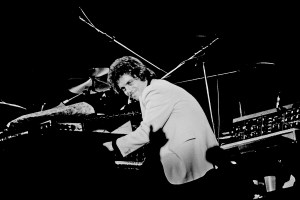
Image Credit: Bobby Bank/Getty Images When Billy Joel was recording the title track to his 1977 LP The Stranger, he told producer Phil Ramone it needed an intro, something that evoked the sound of a mysterious man walking down a shadowy European street at night in a film like The Third Man. To give him an idea of what it should sound like, he whistled a tune off the top of his head. “I look at him and I say, ‘So what instrument should that be?’,” Joel recalled decades later. “And he looks at me and he goes, ‘You just did it.’ I hadn’t even considered that.” The whistle set the stage for “The Stranger,” which indeed sounds like the soundtrack to a lost film noir. It was the least successful single off the album by a long shot, but this wasn’t a song destined for the radio. It’s a quintessential album track known only to the true fans.–Andy Greene
-
‘Scandinavian Skies’

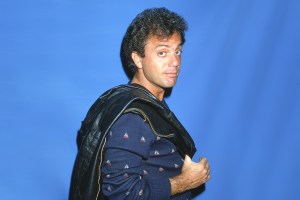
Image Credit: BSR Agency/Gentle Look/Getty Images “Scandinavian Skies” is Joel at his most audacious, an eerie psychedelic travelogue from his most experimental album, The Nylon Curtain. He goes for a trippy Beatles sound, somewhere between “Strawberry Fields Forever” and “I Am the Walrus,” yet with a New York State of mind. He narrates a nightmarish drug experience on a plane during a European tour — it sounds like he’s making love to something a little stronger than his tonic and gin. But there’s also an existential sense of alienation, as if he’s doomed to feel like a stranger wherever he wanders. Brenda and Eddie, meet the Eggman.–R.S.
-
‘Honesty’

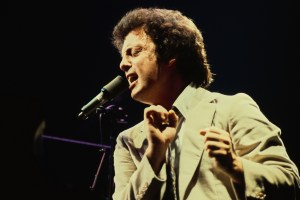
Image Credit: Michael Putland/Getty Images This swaying, string-laden ballad from 52nd Street boasts one of Joel’s best vocal performances, in part because of the way he balances the stretched-out, vibrato-heavy vowels with gruffer moments that drive home his passion and sincerity. Although that may be ironic: “’Honesty’ is the most bullshit song I ever wrote,” he said on SiriusXM in 2016. “I mean, who am I to preach to people, ‘You’ve gotta be honest with me’?’” That wariness might be because drummer Liberty DeVitto’s scratch lyrics retitled the song to “Sodomy” — “I thought, ‘holy shit, I’ve gotta come up with some words very fast’,” Joel said in 2016 — but either way, Joel’s ability to sell the song’s sentiment blots out any trepidation he might have. —Maura Johnston
-
‘I Go to Extremes’

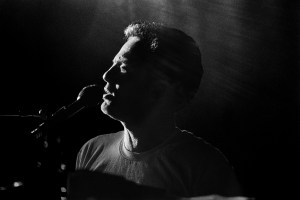
Image Credit: Larry Busacca/Getty Images Billy Joel is the first to admit that he wasn’t always an ideal husband to his second wife, supermodel Christie Brinkley, due to his drinking and erratic moods. His 1989 hit “I Go to Extremes,” produced by Foreigner’s Mick Jones, is essentially an apology to her in the form of a song. “Sometimes I lie awake, night after night,” he sings. “Coming apart at the seams/Eager to please, ready to fight/Why do I go to extremes?” The song gave him a Number Six hit on the Hot 100, and maybe a few more years of marriage, but the extremes eventually became a bit too extreme for Brinkley. They divorced in 1994, yet remain good friends.–A.G.
-
‘Big Man on Mulberry Street’

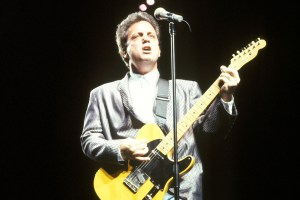
Image Credit: Ebet Roberts/Getty Images Billy in jazzy-swing mode doesn’t get enough credit relative to his other guises. “A Matter of Trust” and “This Is the Time” get all the shine from 1986’s The Bridge, but this brassy big band number is a sui generis moment in his catalog. Joel has called the tune’s big-dream protagonist a “nebbish, but in his own mind he’s the ‘King of Mulberry Street.’” He’s a fictional creation borne out of Joel’s walks near his New York recording studio. Yet its portrait of someone striving to be cool but remaining “on the outside” is also an apt, if paradoxical, descriptor for Joel himself, a sometimes insecure-seeming guy who managed to become one of the most popular musicians of all time.–J.N.
-
‘Don’t Ask Me Why’

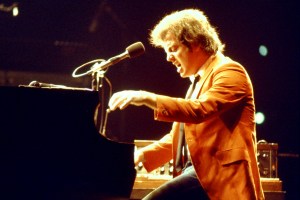
Image Credit: Richard E. Aaron/Redferns/Getty Images Joel’s longtime percussionist Liberty DeVitto picked up the castanets — and, legend has it, some high heels worn by a studio receptionist — for this breezy, flamenco-tinged Top 20 single from Glass Houses. A riposte to someone who’s forgotten their roots that recalls Paul McCartney’s airier solo work, it continues Joel’s run of songs that, as he says at the end of his shows, “don’t take any shit from anybody” and peaks with its piano solo, a glorious dancehall-rousing stomp delivered with a pretention-puncturing flourish.–M.J.
-
‘You’re My Home’

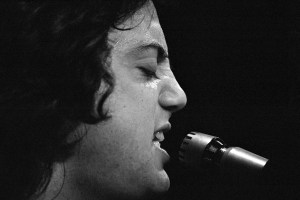
Image Credit: CBS/Getty Images “You’re My Home” was a ballad from Piano Man that didn’t make a dent on the radio or the charts — but it became the flip side of his first hit, the title tune. He later revived it in the 1980 live version on Songs in the Attic. As he wrote in the liner notes, “Corny but true: I was broke at the time (’73) so I wrote this for my wife as a Valentine’s Day gift.” It’s the romantic pledge of a wandering spirit—or a struggling young rock & roller on the road. “Home can be the Pennsylvania Turnpike,” he sings. “Indiana’s early morning dew/High up in the hills of California/Home is just another word for you.”–R.S.
-
‘Pressure’

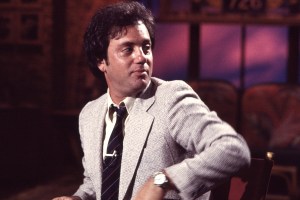
Image Credit: Gary Gershoff/Getty Images The musical equivalent of taking a Wolf of Wall Street-level combo of drugs and staring into the mirror, “Pressure” is one of the most jittery, nervous songs in rock history. The frenetic, minor-key angst of Joel’s rumination on the stress of writing is an odd curio — a twitchy outlier that sounds like a nervous breakdown crescendoing into a pounded fist on the table. The title and idea for the song came from Joel’s secretary, who noticed how much pressure he was under trying to finish The Nylon Curtain. “I give her the credit but none of the publishing,” he said. Bonus points to the approrpiately unnerving video, which channels A Clockwork Orange and Poltergeist.–J.N.
-
‘An Innocent Man’

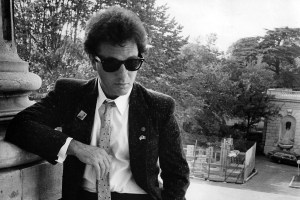
Image Credit: Christian Rose/Roger Viollet/Getty Images Joel headed under the boardwalk for the title track to this 1983 trip down memory lane, a swaying homage to songwriters Jerry Leiber and Mike Stoller that doubles as a chance for him to flaunt his falsetto’s upper reaches — which, he realized, had a bit of a shelf life. “I had a suspicion that was going to be the last time I was going to be able to hit those notes, so why not go out in a blaze of glory?” Joel eventually ceded that high note to backup singers in concert. But on record, it still adds urgency to the lyrics’ not-guilty plea, which is delivered to a judge who’s had too many bad men break her spirit.–M.J.
-
‘The River of Dreams’

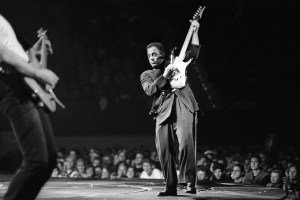
Image Credit: Rob Verhorst/Redferns/Getty Images Joel’s twelfth album The River of Dreams was his last rock record. (His next one, 2001’s Fantasies & Delusions, would be classical music.) The LP’s only hit was its gospel-tinged title track, complete with a full choir that gives the song an uplifting, soulful energy. Joel’s falsetto blends perfectly with his backup singers, creating a deep spiritual feel as he sings lyrics filled with vivid natural imagery (“mountains of faith,” “valley of fear”) that represent our inner struggles and search for meaning; the song’s water imagery serves as a metaphor for faith, baptism, and the subconscious. “The River of Dreams” is a pop song that feels timeless because it dares to ask unanswerable questions.–Alison Weinflash
-
‘Sometimes a Fantasy’


Image Credit: Richard E. Aaron/Redferns/Getty Images Joel has never been one to whitewash the truth and in 1980 the truth was that he was very very horny – at least according to “Sometimes a Fantasy.” Five years before the Village People perfected the admittedly niche “phone sex rock” genre with “Sex Over the Phone,” Joel sang that it’s “awful hard to try to make love long distance” and defaulted to getting off however he can, with driving guitars and propulsive synths backing him up. It’s one of the hardest songs in Joel’s catalog (on multiple levels), and the video, with Joel acting more Philip Seymour Hoffman in Happiness than Don Juan DeMarco, is an underrated Eighties sleaze masterpiece.–J.N.
-
‘Keeping the Faith’

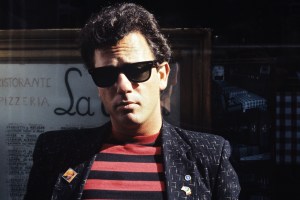
Image Credit: Calle Hesslefors/ullstein bild/Getty Images Joel said the closing track to his 1983 R&B homage An Innocent Man was, “kind of a summation to the whole album” aimed at anyone confused by his post-Nylon Curtain turn to rock and soul’s past. Weaving stories from his greaser youth together with thumping, brassy music and a skip-step beat (an homage to Betty Wright’s early-Seventies soul side “Clean Up Woman”), Joel puts a bow on An Innocent Manbefore splitting the scene to “have a nice cold beer in the shade,” and toast his highly personal project. “I owe a great debt to that time in my life, and to the wild guys I used to hang out with, and the old rock n’ roll that really inspired me,” he told SiriusXM.–M.J.
-
‘Leningrad’

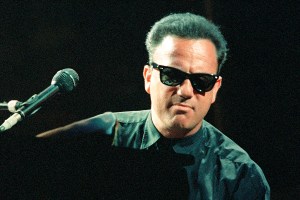
Image Credit: Rick Diamond/Getty Images Billy Joel and Viktor Razinov grew up in different countries on opposite sides of the Cold War, and never would have met had Joel not come to the USSR on his historic 1987 tour. Razinov suffered greatly as the son of a World War II soldier who died during the siege of Leningrad, and became a clown in an attempt to spread joy throughout his despairing land. Joel wrote the somber ballad “Leningrad” after they met backstage at a show, and he made Joel’s young daughter laugh. “And so my child and I came to this place,” Joel sings. “To meet him eye to eye and face to face/He made my daughter laugh, then we embraced/We never knew what friends we had until we came to Leningrad.”–A.G.
-
‘A Matter of Trust’

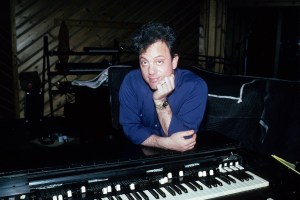
Image Credit: Larry Busacca/Getty Images “A Matter of Trust” saw Joel lean into Eighties guitar-rock without losing any of his signature melodic touch. He sings about what it takes to make a relationship last beyond the initial passion — focusing on the importance of loyalty, dependability, and mutual trust. The urgency of the music mirrors his message, going from verses that pulse with tension into an emotionally charged chorus that reflects the stakes of building something lasting. This track was the second single from The Bridge, his final album with legendary producer Phil Ramone, who’d been working with Joel since The Stranger launched him into superstardom in 1977.–A.W.
-
‘The Entertainer’

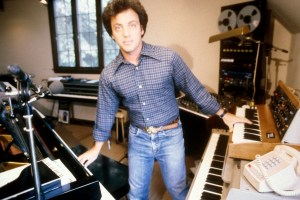
Image Credit: Richard E. Aaron/Redferns/Getty Images Joel’s gimlet-eyed view of the music business was firmly in place after the success of “Piano Man,” and he let his disdain fly on this cut from Streetlife Serenade. Amidst swirling synths, sparkling acoustic guitars, and a bit of banjo, Joel paints a picture of a man who had the misfortune of living his dream — which morphed into the nightmare of having a job. He also takes a second to scoff at industry-mandated single edits: “It was a beautiful song, but it ran too long/If you’re gonna have a hit/You gotta make it fit/So they cut it down to 3:05,” he sneers near the end, referencing the two minutes and 35 seconds lopped off “Piano Man” to endear it to radio programmers and anticipating the way this track, which reached Number 34 on the Hot 100, would be slimmed down as well.--M.J.
-
‘Allentown’

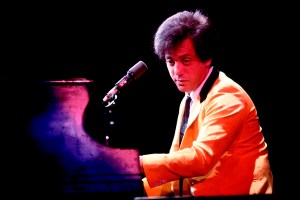
Image Credit: Paul Natkin/Getty Images “I was just trying to talk about people my age,” Joel said of the inspiration behind this barbed ode to the beleaguered Rust Belt city of Allentown, Pennsylvania. “A lot of people my age are wondering, ‘Gee, my old man had a job in this particular place, isn’t it my birthright to get the same job?’.” Arriving in 1982, just as the “Reagan Recession” was hitting places like Allentown especially hard, the song compacts an impressively empathetic and nuanced attempt to articulate the anger and apathy of the left-behind American post-World War II working class into a perfectly crafted single. The result is a three-minute pop-rock hit with enough history behind it for a three-night Ken Burns documentary.–J.D.
-
‘All for Leyna’

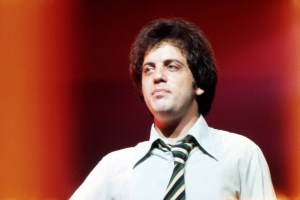
Image Credit: Don Aters/Icon and Image/Getty Images With Joel’s piano hammering like a migraine and eighth notes piling up like texts left unread, “Leyna” is an indignant, three-minute manifesto about refusing to give up on someone who is objectively terrible. “She didn’t tell me there were rocks under the waves/ ight off the shore,” he sings. Joel amplifies the drama with a polished yet frantic arena-rock track that thrives in the tension between delivering Brill Building craft while still seeming like a hyperventilating mess. “Leyna” wasn’t the commercial hit it could have been, but it remains the release valve of Joel’s live set. Forty years on, they only want Leyna one more time.–Sarah Grant
-
‘Los Angelenos’

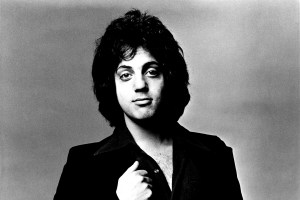
Image Credit: Michael Ochs Archives/Getty Images Given his love of a grand melody that could easily be heard in a Broadway musical, a ticked-off Billy Joel is never a bad thing — anger and resentment steer him back to his punky Long Island roots. As he’s long discussed, those couple of years when he lived on the West Coast before he hit the career jackpot were not his happiest. And in one of the most indignant songs of his early career, he takes the town — and its “Midwestern ladies, high-heeled and faded” and the “electric babies, blue-jeaned and jaded” — to task. Slamming into his electric piano as his band tries to keep up, Joel makes the case that he was never just going to be anyone’s overly sensitive singer-songwriter.–David Browne
-
‘The Downeaster ‘Alexa”


Image Credit: John Keating/Newsday RM/Getty Images Joel’s tip of the sailing cap to his Long Island roots is one of the most cinematic songs in his catalog; you could make a map out of all the specific references to that part of the country. Taking on the role of a hard-working fisherman struggling to make a living and support his family (“I know there’s fish out there”), he fully inhabits the character as much as any pop star could. The star of the song, however, is the arrangement and production (by Joel and Foreigner’s Mick Jones): As the rhythms bob and crash you almost feel as if you’re on a boat fighting the waves, the tides and the lonely hardship.–D.B.
-
‘Streetlife Serenader’

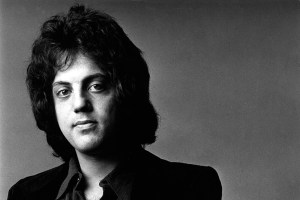
Image Credit: Michael Ochs Archives/Getty Images “Streetlife Serenader” is more sketch than song on an album hastily born in the wake of Piano Man. Joel said it was inspired by “the unsung a cappella street corner choirs,” and you can hear that reverence beneath the haze of Moog crescendoes and slinking counter-melodies. The fact that “Serenader” never quite reaches the cinematic grandeur it’s clearly aiming for makes it accidentally gorgeous. Its wordless atmosphere evokes an emptied-out city, a sky swollen with rain, with a rare Joel guitar solo pushing through the noise in his own mind. He re-recorded a live version for 1981’s Songs in the Attic, calling it one of his most emotionally satisfying compositions: “It was fun being a French expressionist,” he wrote in the liner notes. “I gave Debussy a good beating. He won.”–S.G.
-
‘Leave a Tender Moment Alone’

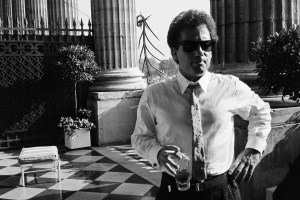
Image Credit: Jean-Louis URLI/Gamma-Rapho/Getty Images “Leave a Tender Moment Alone” was a hit in the summer of 1984, but it’s become strangely underrated — not least by Joel himself, who all but quit singing it forty years ago. Yet it’s a bittersweet ballad mixing early Stevie Wonder and Brian Wilson, the most Pet Sounds thing he’s ever recorded. He gets harmonica from the jazzman Toots Thielemans — you know his sound from Sesame Street. As on other songs on An Innocent Man, Billy offers a little practical advice to the clueless downtown men out there, with candid do’s and don’t’s on how to handle a romantic situation. (Goofus: “Tell the girl a comical line.” Gallant: “Leave a tender moment alone.”) Tell ‘em about it, B.J.–R.S.
-
‘Stiletto’

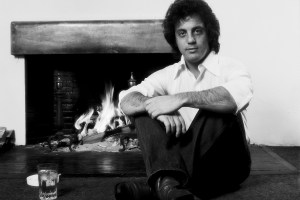
Image Credit: Michael Putland/Getty Images “Stiletto” was never a hit, but it’s a perennial fan favorite, with one of the funkiest grooves in the Joel canon — a low-register riff topped with splashy piano frills and finger-snaps. He sings about a knife-toting femme fatale, sneering, “She’s so good with her stiletto/You don’t even see the blade.” It’s the flip side of “She’s Always a Woman,” where his muse will carelessly cut him and laugh while he’s bleedin’ — Billy really has a thing for the razor girls. “Stiletto” was one of the first Joel songs to turn into a hip-hop classic, when Kool G Rap and DJ Polo turned the groove into their 1988 gangster strut “Road to the Riches.”–R.S.
-
‘My Life’

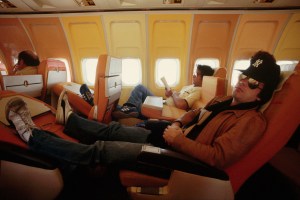
Image Credit: © Wally McNamee/CORBIS/Getty Images “I’ve always had this thing about independence,” Joel told Rolling Stone in 1978. “It’s a theme I always go back to. Breaking away, stating your own independence, moving away from home, standing on your own two feet.” This rave-up from 52 Street has a sitcom-theme-level catchiness—a cover of it scored the opening credits of the Tom Hanks/Peter Scolari primetime hit Bosom Buddies—even as it allows Joel the chance to take aim at anyone questioning his choices. Over an insistent piano line that acts as the song’s pulse, Joel lays out his desire to be his own man in a way that sounds like a taunt thanks to its deceptively simple melody; when he erupts on the bridge, bellowing “don’t get me wrong!,” the gravity of his complaint is driven home.–M.J.
-
‘The Ballad of Billy the Kid’

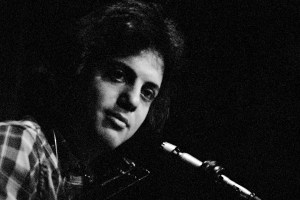
Image Credit: CBS/Getty Images If you want to learn about the historic Billy the Kid, disregard this song completely. That’s because, contrary to Joel’s assertions, Henry McCarty (aka Billy the Kid) wasn’t born in Wheeling, West Virginia, never ventured into Utah or Oklahoma, didn’t rob a bank anywhere, and died from a gunshot rather than a hanging. But if you want to hear a fantastic imaginary western song inspired by a Long Island bartender who Joel knew back in the Seventies, “The Ballad of the Bill the Kid” is most definitely for you. And Billy The Kid is more myth than fact nowadays. Plus, A song about a cattle rustler in Arizona would’ve been boring..--A.G.
-
‘Just the Way You Are’

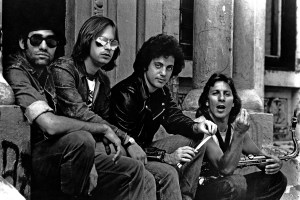
Image Credit: Michael Ochs Archives/Getty Images Joel cribbed the title of this heart-on-his-sleeve ballad from a line in the Four Seasons’ “Rag Doll,” and in the process crafted a bona fide pop standard, covered by everyone from Barry White to Frank Sinatra. It’s glorious electric-piano schmaltz, with a Yacht Rock sax solo by Phil Woods thrown in for good measure, all soundtracking the narrator’s plea to his lover to refrain from doing anything just to “try and please me.” (That includes but is not limited to attempting “some new fashion” or changing “the color of your hair.”) The lead single off 1977’s The Stranger, “Just the Way You Are” has more sap than a maple tree in fall, but its that sticky sweetness that makes it one of Joel’s most indelible hits.–Joseph Hudak
-
‘Prelude/Angry Young Man’

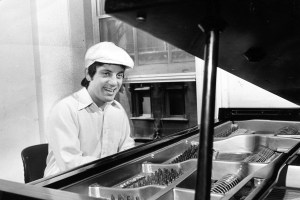
Image Credit: Jim Peppler/Newsday RM/Getty Images The piano pyrotechnics that open this two-act Turnstiles track were initially inspired by the way the surf-rock classic “Wipe Out” hit Joel and his classmates in high school. “Everybody used to play the drum part in class,” Joel told Howard Stern in 2015, “and the teacher would go, ‘Shut up!’ So you take that and put it on the piano.” From there, Joel vamps through a series of styles before launching into a fast-paced portrait of a righteous rager whose rebellion has a cause: “He’s been stabbed in the back, he’s been misunderstood/ It’s a comfort to know his intentions are good,” While his chip-on-the-shoulder stance is admirable, Joel notes on the bridge that it might have an expiration date — just like it did for him. –M.J.
-
‘Where’s the Orchestra?’

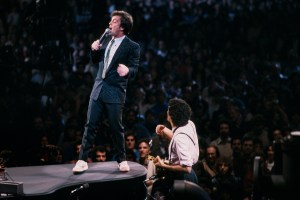
Image Credit: Larry Busacca/Getty Images Billy Joel based his 1982 opus The Nylon Curtain on the theme of surrender. “Everyone has to deal with it,” he told Rolling Stone. “Not total surrender, but temporary defeat. I think it’s a very American thing to be hopeful.” “Where’s the Orchestra?” is his soliloquy of thirty-something malaise, as he wonders why his life turned out to be a downbeat play instead of a glamorous musical. As he explained, “The whole metaphor of that song is that life is a theatrical play, and it’s all a tragedy, and — even though you can enjoy the comedic, ironic elements of what you’re experiencing—life will always come up and whap you on the head.”--R.S.
-
‘Big Shot’

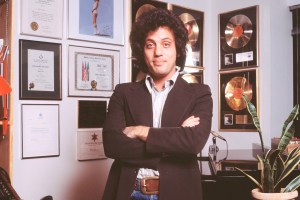
Image Credit: Michael Putland/Getty Images Who is the Big Shot and why is Billy Joel dragging them so hard? From the opening “Weeeeellll,” every word drips with contempt and exasperation at the song’s target — a Halston-dress wearing, coke snorting, chatty Cathy who doesn’t know when to leave the party. Years later, Joel said the song was inspired by a dinner in the late-1970s with Mick Jagger and his then-wife Bianca Jagger. “She was kind of puttin’ on the Ritz a little bit and I think he was kind of bugged with the whole bit,” Joel told Howard Stern in 2010. “I was thinking of Mick singing that to Bianca Jagger.” Joel even mimicked Jagger a little in his vocals on the track. “I just pictured Mick singing it.”–Lisa Tozzi
-
‘Uptown Girl’

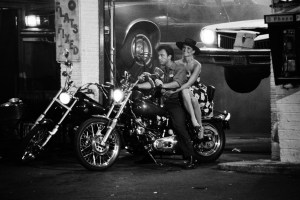
Image Credit: Vinnie Zuffante/Getty Images The charm of “Uptown Girl:” lies in its romantic backstory and its throwback sound. Inspired by the doo-wop style of Frankie Valli and the Four Seasons, Joel crafted a tribute to 1960s pop with a modern flair. Its tale of a working class guy who wins the heart of an out-of-his-league woman was initially inspired by a surreal moment in the Caribbean where he found himself playing piano in front of Christie Brinkley, Whitney Houston, and his girlfriend at the time, Elle Macpherson. The sentiment worked just as well by the time the tune was released and he was dating Brinkley, who starred in the song’s iconic video. One of the great pop music celebrations of a regular guy’s good fortune, “Uptown Girl” became a Number 3 hit in the U.S. and his only Number One in the UK.–A.W.
-
‘Say Goodbye to Hollywood’

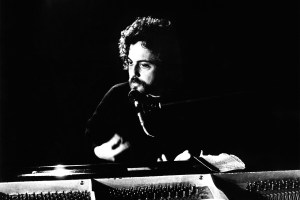
Image Credit: Gijsbert Hanekroot/Redferns/Getty Images Building on the drum beat of the Ronettes’ “Be My Baby,” Joel crafts a dead-on tribute to Phil Spector’s Wall of Sound pop, with one of his biggest choruses. For all the pastiche of the construction, the song is entirely sincere and autobiographical — Joel wrote it about ending his exile in California and returning to New York. “Life is a series of hellos and goodbyes,” he sings, and who could disagree?. “I was really happy to get getting out of L.A.,” he recalled. “The first year I was there, I was kind of seduced by the nice weather, the palm trees and the views from the Hollywood Hills, the Pacific Coast Highway and all that stuff. That wore off after about a year.”–Brian Hiatt
-
‘The Longest Time’

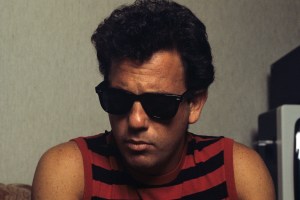
Image Credit: Calle Hesslefors/ullstein bild/Getty Images A moment of gently contrarian brilliance — nusic in the early Eighties was getting slicker and more overly produced, but Joel proved you could have a hit by using just voices and finger snaps (and a little bass guitar courtesy Doug Stegmeyer). He tapped his love of Fifties vocal groups like Frankie Lymon and the Teenagers, singing all the parts in the tune’s rich vocal arrangement himself and delivering a doo-wop valentine that stuck out at the time for its unabashed nostalgia. “I did what I call method singing,” he recalled years later. “I imagined myself as a skinny Italian kid from Newark, and then I did another voice and I thought of myself as a big Black football player with a real deep bass voice. And then I thought of myself as a Pat Boone kind of singer.”–J.D.
-
‘And So It Goes’

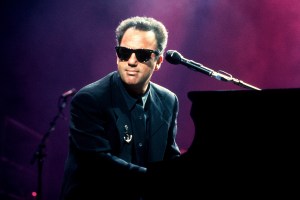
Image Credit: Paul Natkin/Getty Images In his music and live shows, and sometimes his life, Joel isn’t always known for reining it in; he has a flair for the gloriously overblown and stagey. Which only makes this reflection on his doomed relationship with a model (supposedly Elle Macpherson) all the more affecting. (As he told Howard Stern, “It wasn’t going to work out and it didn’t work out. We were mismatched.”) Adhering closely to the song’s taut melody and singing as if he’s regretful but not angry, Joel offers up one of his most subtly distraught breakup songs. He admits he could talk to his ex “in callous tones,” but what makes “And So It Goes” so striking is how compassionate and accepting it is of the way life does sometimes go.–D.B.
-
‘You May Be Right’

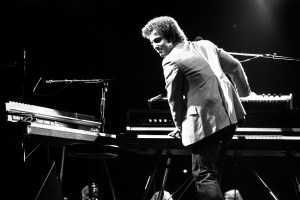
Image Credit: Richard E. Aaron/Redferns/Getty Images “It just may be a LOOOO-natic you’re looking for!,” Billy belts in this Top Ten hit, kicking off Glass Houses and officially beginning his leather rocker-boy era. He serves notice that he’s a dangerous madman, because he does depraved things like ride his motorcycle in the rain. (Gosh, Lemmy must’ve been terrified.) “You May Be Right” is his rowdiest rock anthem, with a rowdy sax solo to match. He did a memorable live version with Garth Brooks at the country superstar’s 1997 Live from Central Park TV special. But “You May Be Right” kicks enough ass to serve as Billy’s regular live set-closer for years, with a snippet of Led Zep’s “Rock and Roll” thrown in.–R.S.
-
‘Zanzibar’

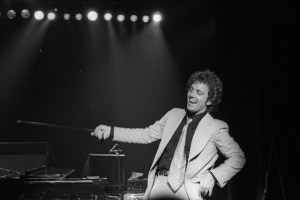
Image Credit: Michael Ochs Archives/Getty Images A jazzy highlight of 52nd Street, and one of his most cherished live show-stoppers, “Zanzibar” is basically Billy Joel doing Steely Dan in his own distinctive style, with a mix of booze, sex, and baseball. He’s a young dreamer with a jazz guitar, but he’s stuck in a dive called Zanzibar— fancier than the bar in “Piano Man” but sleazier than Mr. Cacciatore’s down on Sullivan Street. It’s his “Deacon Blue”-style fantasy of being a true artist, a made guy, or at least impressing the waitress enough for a round of free drinks. “Zanzibar” makes good on his fantasy with trumpet solos from bebop legend Freddy Hubbard.–R.S.
-
‘It’s Still Rock and Roll to Me’

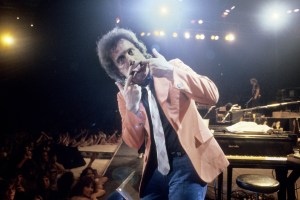
Image Credit: Richard E. Aaron/Redferns/Getty Images Angered by music critics who sometimes dismissed his ornate compositions as middle of the road while championing trendy comparatively basic sounds like punk and New Wave, Joel responded with a tune that cleverly folded a taut, tough, New Wave-like track into a sax-blasting rock & roll anthem, driving home his point that every new style came from the same classic source. “Sometimes the press gave me a hard time,” he told Howard Stern. “And I liked giving them a hard time back.” Proving that taking sides against the media is often a bankable strategy, the song became his first Number One single.–J.D.
-
‘She’s Always a Woman’

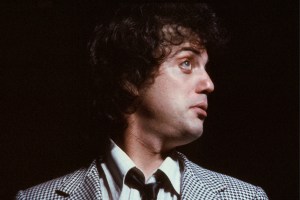
Image Credit: stan frgacic/Corbis/Getty Images With no percussion and no defenses, this piano waltz became the breakout hit on The Stranger and one of the most enduring love songs in pop history. Joel wrote it for Elizabeth Weber, his wife and manager, the steely, brilliant force behind his early success. Weber was regarded as “difficult” in the male-dominated industry, and Joel celebrated that toughness with the line, “She’ll carelessly cut you and laugh while you’re bleeding,” sung with fondness, not fear, and maybe a little pride. In his memoir, Joel admitted he first fell in love with the song’s melody, and to remember it had a placeholder lyric: “the view from the 35th floor,” nodding to his apartment at the time. “I’m not going to write about the view,” he said, “because I’m basically looking at Queens.”–S.G.
-
‘We Didn’t Start the Fire’

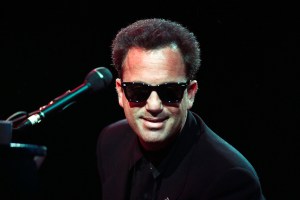
Image Credit: John Keating/Newsday RM/Getty Images Confronted by a young kid who insisted that nothing happened in the 1950s, Joel penned a motor-mouthed laundry list of historical events tracing the political and cultural journey of his generation, beginning with the dawn of the Cold War and ending with Eighties “cola wars.” Joel later compared its melody to a “dentist drill,” and it would be endlessly parodied over the years, but “We Didn’t Start the Fire” touched a nerve with listeners who’d experienced the fall the Berlin Wall a month before the song became Joel’s third Number One single. A 2023 version from Fall Out Boy trying to pick up the historical thread totally tanked, showing that few artists ever have had Joel’s cross-generational gravitas and innate sense of how to guide masses of people through their own shared stories — even when he’s operating on the most absurdly grand scale imaginable.–J.D.
-
‘Miami 2017 (Seen the Lights Go Out on Broadway)’

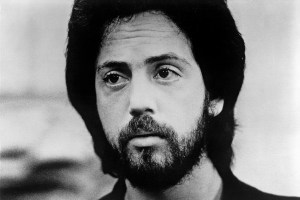
Image Credit: Michael Ochs Archives/Getty Images When he wrote it circa 1975, Joel imagined this anomalous dip into dystopian sci-fi as the memories of an elderly former New Yorker who retreated to Florida in the then far-flung year of 2017. The lyrics, written in the wake of New York City’s Seventies bankruptcy, predict an apocalyptic future for the metropolis — the narrator “watched the mighty skyline fall.” It’s all weirdly rousing though, with the arrangement’s arena muscle lending a strong note of defiance to the narrative. The song gained an unexpected new emotional punch when Joel performed it at a post-9/11 benefit concert, after Broadway’s lights really did dim for a while.--B.H.
-
‘Only the Good Die Young’

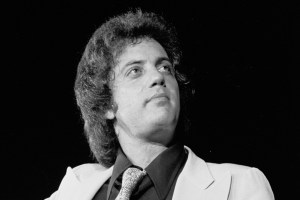
Image Credit: Bobby Bank/Getty Images Joel’s unabashed blue-balls rocker found him begging — some would say, pressuring — a not-yet-of-age Catholic girl to do the deed. As Joel reasons, it’s gonna happen sooner or later, so, “I might as well will be the one.” But despite such persuasive charm, Virginia remains as pure as her name, bearing out Joel’s axiom that “you Catholic girls start much too late.” “I wanted to write a song…about a guy trying to seduce a Catholic girl,” the songwriter told USA Today in 2008. “I don’t remember what all the fuss was about, because she stayed chaste.” “Only the Good Die Young” was released in 1977 on The Stranger, coincidentally the same year that a similarly themed bombastic piano song came on the scene: Meat Loaf’s “Paradise by the Dashboard Light.”–J.H.
-
‘Captain Jack’

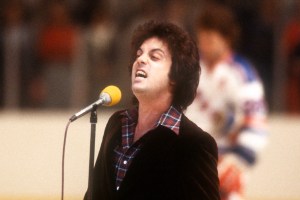
Image Credit: Bruce Bennett Studios/Getty Images Studios/Getty Images Joel rarely plays this song live, and you can almost understand why. For decades, debate raged over whether this Piano Man track was about drugs, alcohol, masturbation, or all of the above. (Joel himself eventually clarified, saying, “I didn’t mean it to be any specific drug, it’s whatever people had to take to escape reality. It was drugs in general.”) And there’s no doubt that it’s one of his most Billy Downer lyrics, portraying a world of dead dads in pools and drug-addled suburban kids trying and failing to look hip. But the way Joel’s voice and the music swell into theatrical overdrive in the chorus is hard to beat. Even if some of those people in the arenas and stadiums are singing along for the wrong reason, “Captain Jack” is addictively over the top. –D.B.
-
‘Piano Man’

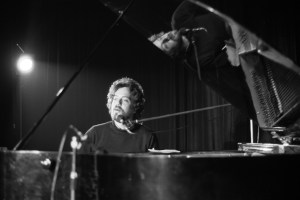
Image Credit: Sepia Times/Universal Images Group/Getty Images Near the end of every Bill Joel concert, without exception, he straps on an harmonica rack, lets out a long, exaggerated sigh, and watches the place erupt as he plays the opening notes of “Piano Man.” He may be exhausted by 52 years and thousands upon thousands renditions of the song, but the world will never tire of the tale of “John at the bar,” “Davy, who’s still in the navy” and Paul the “real estate novelist,” weaved together from Joel’s brief tenure at Executive Room bar in Los Angeles circa 1972/73, right after his debut Cold Spring Harbor bombed and he needed time to decompress before figuring out his next move. The song gave him his first hit single, the title track to his second album, just enough momentum to keep Sony from dropping him from the label, and a nickname that’ll quite possibly be chiseled onto his tombstone.–A.G.
-
‘Goodnight Saigon’


Image Credit: BSR Agency/Gentle Look/Getty Images The first side of The Nylon Curtain wraps up with one of the single most ambitious songs in Billy Joel’s catalog, a seven-minute ode to the Vietnam Vets who went off to fight in a war that Joel himself avoided. “I wanted to do that for my friends who did go to ‘Nam,” Joel said. “They were never really welcomed back, and whether you agreed with the war or not, these guys really took it on the chin.” The song begins gently with the sound of crickets and the arrival of a helicopter, then slowly builds in intensity, touching on everything from Bob Hope’s USO shows to Playboy and Doors tapes, never once getting even remotely into politics. Instead it’s a song about brotherhood and sacrifice. “Goodnight Saigon” was a live favorite for years, and Joel would often invite members of the armed services onstage to sing along to the chorus. But it’s become a concert rarity in recent years.–A.G.
-
‘Summer, Highland Falls’

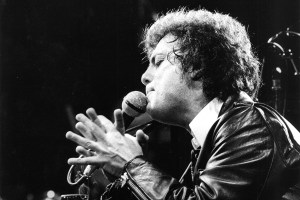
Image Credit: Gijsbert Hanekroot/Redferns/Getty Images The Stranger made Joel an arena star, but Turnstiles, the album that preceded it, was the moment when his songwriting, melodic grandeur and less overly melodramatic sides began merging. Supposedly written during his time living in upstate New York following an unsatisfying period in L.A., “Summer, Highland Falls” wants to capture manic depression by way of shifting tempos and lyrics. Lines like “Now we are forced to recognize our inhumanity/Our reason coexists with our insanity” stills feel a little unnatural coming from him. But the elegant piano chords and shifting tempos marked the sound of a composer truly coming into his own. For a song about psychological struggles, it’s ironically one of his most relaxed. –D.B.
-
‘Vienna’

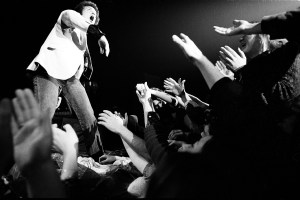
Image Credit: Michael Putland/Getty Images “Vienna” is the classic case of a non-single that slowly becomes a fan favorite, aging like a fine wine (a bottle of red, if you will). The stunning ballad was released as a B-side to “Just the Way You Are,” one of the five hit singles from The Stranger. Featuring Joel’s twinkly piano and Dominic Cortese on accordion, it’s a song that anyone can apply to themselves. Joel tells all us crazy children to slow down, take the phone off the hook, and disappear for a while (Jennifer Garner literally does this as the song plays in a scene from in 13 Going on 30). Joel was inspired by visits to his father in Vienna, and a conversation they had about aging. “You don’t have to squeeze your whole life into your twenties and thirties trying to make it, trying to achieve that American dream, getting in the rat race and killing yourself,” Joel said. “You have a whole life to live. I kind of used ‘Vienna’ as a metaphor: There is a reason for being old, a purpose.”–Angie Martoccio
-
‘New York State of Mind’

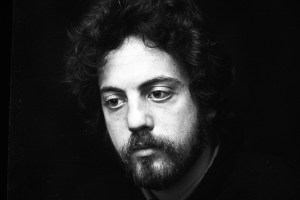
Image Credit: Gijsbert Hanekroot/Redferns/Getty Images Joel penned his salute to the Big Apple after relocating from California. It came to him quickly; in 2010, he told Howard Stern that he was inspired to write the soulful track while, yes, taking a Greyhound on the Hudson River Line. After disembarking, Joel wrote the song in about 15 minutes. The closing song to side one of 1976’s Turnstiles, it wasn’t released as a single, but it made an impact — thanks to Joel’s impassioned vocal and a sax solo that glows like a street lamp at 3 a.m. In 2017, when Rolling Stone asked Joel to name his favorite Billy Joel song, he answered, “‘New York State of Mind.’ I guess, it became a standard. Sort of like Hoagy Carmichael’s ‘Stardust,’ or ‘Georgia on My Mind.’ It became one of those songs.”–M.J.
-
‘Movin’ Out (Anthony’s Song)’

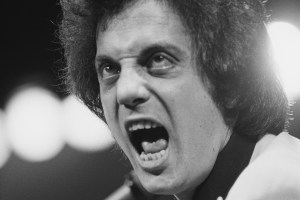
Image Credit: Michael Putland/Getty Images Joel wasn’t afraid to take his piano out of the mix altogether, as on the bulk of this taut social-realist classic, set in a vividly sketched New York landscape — if Mr. Cacciatore’s on Sullivan Street, across from the medical center, wasn’t a real restaurant, it should have been. Driven by the metronomic churn of rhythm guitars entwined with Liberty Devitto’s hi-hat, the song tackles a subject few other rock songwriters would even consider — middle-class strivers who come to realize the pointlessness of “moving up.” And Dr. Joel is right: working too hard can indeed give you a heart attack-ack-ack.–B.H.
-
‘Scenes From an Italian Restaurant’

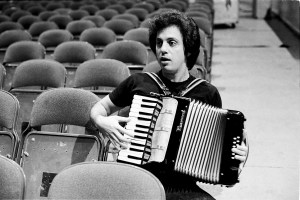
Image Credit: Michael Putland/Getty Images Billy Joel’s greatest song is the only known example of Long Island prog, a bastard child of Chuck Berry’s “You Never Can Tell” and the Abbey Road medley that proves there’s an opera out on the L.I.E, as much as on the Jersey Turnpike. Musically, it’s a deceptively quirky seven-minute-plus journey that gels against all odds, packing in odd rhythmic flourishes, jazzy bits, accordion swells, solos on both a tenor and soprano saxophone, and the late Doug Stegmeyer’s memorably hyperactive bass lines. In all, It taps into some of the same post-Sixties ennui that produced “Fire and Rain” and “Running on Empty,” with more than a hint of American Graffiti-style nostalgia along the way. Brenda and Eddie couldn’t go back to the greasers, and neither could anyone else.--B.H.
